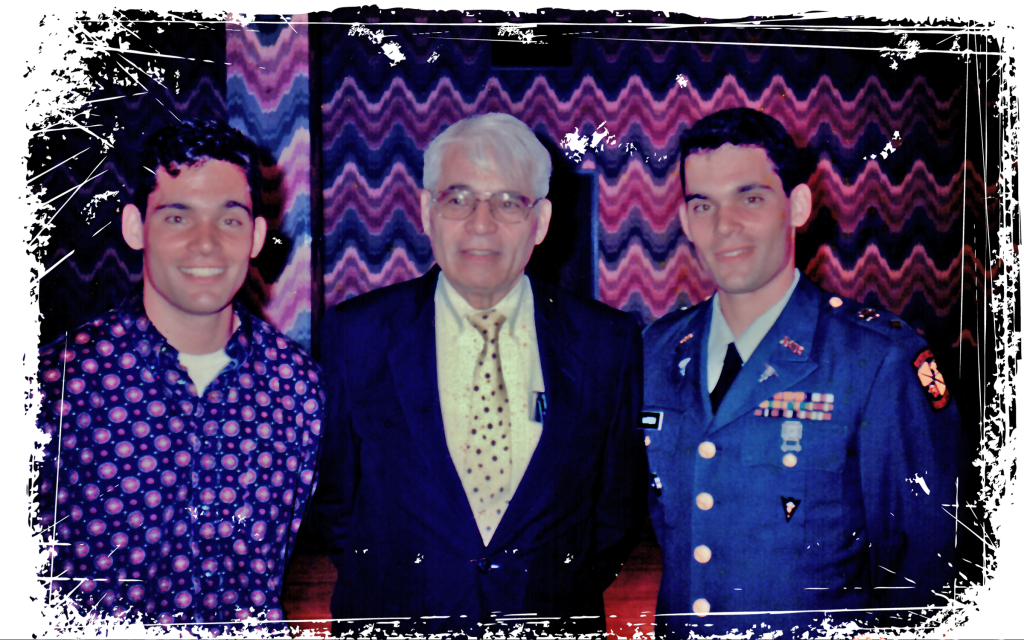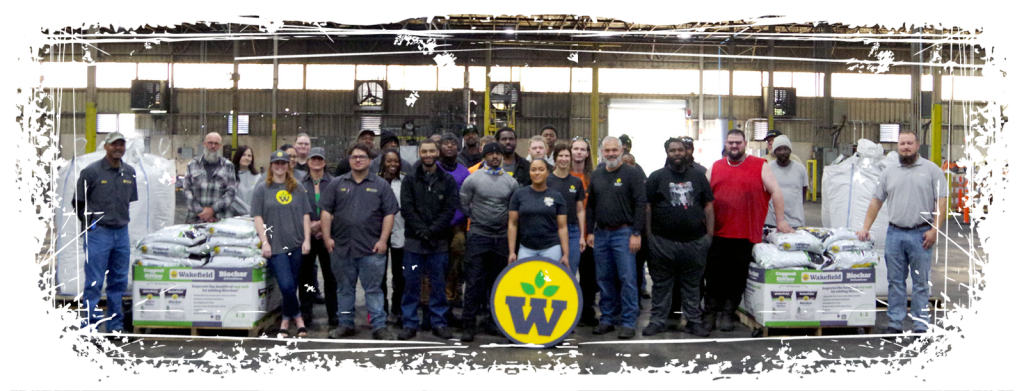The Wakefield Story
Wakefield is a family-owned company formed with simple mission:
Better Soil. Better World.
Our dad was a chemical engineering professor at the University of Missouri. He loved gardening and involved his kids in studying the impact of soil health on plant growth. We researched and planted together, learning and being inspired by dad along the way. We were amazed by the incredibly healthy flowers, vegetables, trees and grass that grew when we added biochar to the soil.
He was the son of Venezuelan immigrants, and he treasured this land. He lived his values of family, giving back to the community, and personal accountability. After careers in business and the military, we formed Wakefield in 2014 in our dad’s honor.
Understanding the science of biochar, we know it improves the health of any soil. And, we appreciate that carbon-rich soil has so many other environmental benefits.
Sustainability is a top priority for our team. We are proud to be a member of ForestTrust, and to participate in the carbon credits market. And, we work hard to educate everyone about the environmental benefits of biochar, including that using biochar reduces greenhouse gases in the atmosphere.
We have a pure love for growing great gardens, tending beautiful yards, and making the world a better place. We’re aiming to make Wakefield Biochar all-natural soil conditioners accessible and affordable to all — from consumers to farms and large government projects. We strive to live up to our environmental responsibility, and at the same time help all gardeners to enjoy beautiful gardens with less work!
Our growing Wakefield family of talented employees shares our passion for soil health, sustainability, and serving others. Their creativity, energy, and dedication drive our mission forward, helping us bring biochar’s benefits to more gardens, farms, and communities every day. Together, we’re making a difference — one handful of soil at a time.
What Is Biochar?
Exactly what is biochar, and why do we think it can change the planet?
The use of biochar dates back thousands of years. The indigenous people of the Amazon Basin created Terra Preta, the rich Black Earth of the Amazon jungle, by burning organic materials and letting the biomass smolder. Although the soils of the Amazonian jungle are notoriously infertile, this early version of biochar brought extraordinary productivity to these previously poor soils. This was no temporary fix – the acreage mixed with biochar remains unusually fertile more than two millennia later. Today, biochar is created via a process known as pyrolysis. That’s the heating of biomass at high temperatures in a no-to-low oxygen environment.
Biochar boosts soil fertility to help plants flourish. And, because biochar helps soil retain water and reduces fertilizer loss significantly, there’s much less work for you. Biochar also sequesters carbon before it can decompose into greenhouse gases. So, it’s a better soil conditioner for your plants, that’s also better for the planet.
Beneficial Reuse
We partner in the beneficial reuse of biomass waste. Our biochar derives from virgin pine wood from paper mills processed in our state-of-the-art pyrolysis facility in Valdosta, Georgia, a city with a long history in the forestry industry.
In 2025, we’re expanding with new pyrolysis facilities to rapidly increase our innovation efforts in the way biochar can solve problems of our agriculture, environment and manufacturing.
Large manufacturers recognize the value of the beneficial reuse of their organic waste materials. Our beneficial reuse division partners with paper mills for biomass and other waste products. For the mills, such reuse is both economically and environmentally sound.
Biochar Products
Wakefield BioChar’s products are sold through major retailers, including Amazon, Walmart, Home Depot, Lowe’s, Sam’s Club, and Tractor Supply. Not to mention, hundreds of independently owned lawn & garden stores across the country. We also supply local farmers with biochar to improve their crop yields, as well as using biochar blends for land remediation projects.
We launched a suite of new products in 2025 to meet the growing demand from retail shoppers looking to grow their best gardens, while saving time, saving money, and helping the planet. Our new products come in 2-quart, 4-quart, and 1-cubic-foot bags, as well as 2-cubic-yard super sacks for larger projects.
- Original 100% Premium Biochar
- Biochar with CarbonBoost™
- And our all-new Biochar Blends (with CarbonBoost) designed especially for:
New Tools to Help You Grow
We’re excited to introduce our all-new Learning Center, packed with expert articles, how-to guides, and videos to help you make the most of biochar. Don’t miss our monthly newsletter for gardening tips, product updates, and creative ideas to grow your best garden.
And meet the newest member of the Wakefield family: CharBot! Our friendly AI assistant is here to answer your questions and guide you to the right products and resources. Just click the CharBot icon (question mark) in the bottom corner of the site to start chatting!
Join Our Commitment to Sustainability
At Wakefield BioChar, we are committed to sustainability and making better soil for the planet we all share. Not only will homeowners, gardeners, and farmers see a significant difference in the quality of their plantings and crops when they enhance their soil with biochar, but they also have the satisfaction of knowing that they’re helping to minimize greenhouse gas emissions. Learn more about our products or contact us for more information!






